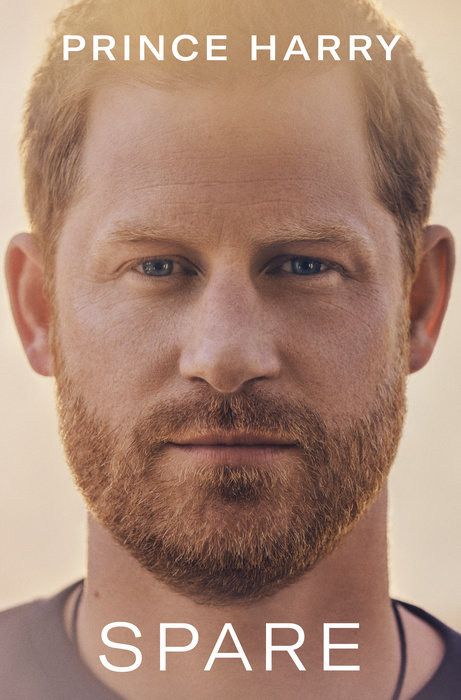Book reviews: Spare and Endgame

At the rate royal “bombshells” drop, one might imagine Buckingham Palace a smoking crater of charred ruins.
But after years of drama, not only do all the grand old piles in the British royal family’s vast portfolio of real estate still stand, but the royal machinery that sustains them isn’t even dinged. And that’s because all the smoke and dazzle is part of a calculated strategy, a show cooked up in concert between “the Firm” and the tabloids that profit from royal clickbait. The gossipy headlines generate profit for the papers, sustain public interest in Britain’s royal family, and provide a useful way to punish members who don’t toe the institutional line.
Prince Harry’s biography Spare became the fastest-selling nonfiction book of all time and generated countless media headlines. Omid Scobie’s Endgame is currently providing chum for another tabloid feeding frenzy.
But ironically, both books are packed with stories the tabloids won’t repeat, because they illuminate too much of the “invisible contract” between palace and press.
In probably the best coverage of Spare, Zeynep Tufekci wrote for the New York Times: “Any close follower of the British media should not have been surprised that after Prince Harry fell in love with Meghan Markle, the biracial American actress, years of vitriolic, even racist coverage followed. Whipping hatred and spreading lies — including on issues far more consequential than a royal romance — is a specialty of Britain’s atrocious but politically influential tabloids.
“People like me, uninterested in celebrities, shouldn’t dismiss the brouhaha around Harry’s memoir as mere celebrity tittle-tattle. He has made credible, even documented claims that his own family refused to stand up against their ugly, sustained attacks against Meghan. In other words, it appears that Britain’s most revered institution, funded by tens of millions in taxpayer funds annually, plays ball with one of its most revolting institutions.
“At the very least, it seems clear by now where some senior members of the royal family position themselves in all this.”
Endgame goes even farther than Spare in detailing the often sordid workings of the invisible contract between journos and courtiers. Scobie details how Christian Jones, Prince William’s communications secretary, fed negative stories about the Sussexes to Dan Wootton at The Sun in exchange for burying another story that might have been highly damaging to the heir: reports of private dinners and a “rural rivalry” that hinted at an affair between Prince William and Rose Hanbury, the Marchioness of Cholmondeley.
No proof or confirmation of that royal affair was ever provided, because after Jones’s intervention, those articles were comprehensively scrubbed from The Sun’s website. Instead, the paper was apparently allowed to break the story of what it would call “Megxit”: Harry and Meghan’s desire to separate themselves from the Firm.
According to both Endgame and a report by the Byline Times, when Harry pursued legal action against The Sun, he was punished by the withdrawal of his official security. (It’s worth noting that the disgraced Prince Andrew is still provided security, despite having a much lower threat profile than Harry.) Scobie quotes a source as saying: “I have never seen the Palace circle the wagons like they did with Christian.” Byline Times also quotes a source: “They threatened the removal of the funding to try and protect the royal household from a potential courtroom scandal with Jones and Wootton very publicly at the centre.”
Why would the Firm pull out all the stops to protect a courtier, even if it meant putting the monarch’s own second son in real and immediate danger?
Because Jones is merely a flunky for Prince William, and it’s hard to imagine that Jones’s press machinations were conducted without the approval of his “principal.” Indeed, he wasn’t William’s only communications secretary to openly collude with the tabloids against Harry and Meghan: another highly placed aide, Jason Knauf, gave testimony on behalf of the Daily Mail in a case brought against it by the Duchess of Sussex, regarding the leak of a private letter. (Despite the attempted sabotage from William’s camp, she won that case and was awarded a front page correction and a large settlement.)
The details of all this sordidness — the sacrifice of Harry and Meghan on the altar of tabloid drama, with obsidian knives wielded by Harry’s own closest kin in an attempt to secure more favorable coverage for themselves — form the narrative backbone of both books. And William isn’t the only one implicated in the matter: Queen Camilla emerges as a canny and ruthless operator, buying the rehabilitation of her own image with the coin of gossip leaked against both her stepsons.
“In a funny way I even wanted Camilla to be happy,” Harry writes. “Maybe she’d be less dangerous if she was happy.”
It’s pretty hard to tell if anyone’s happy in Britain’s royal family. Endgame tells us that Charles is jealous of William, that William is jealous of Harry, and that Harry will probably never get any of the remorse he’d like to see for the way he and his wife were thrown to the wolves. Hating Harry — and even more so, Meghan — has become its own lucrative, self-sustaining industry. Literally hundreds of negative articles are published about the two every day. It’s a relentless, often racist onslaught of character assassination that exploits the same culture-war fissures that drove Brexit.
Spare mostly comes off as a good-faith effort from a deeply weird person to explain to the rest of us why he’s like this. Endgame isn’t as well-written or compelling, but it backs up a lot of what Harry puts into generalizations with names, dates, and specifics. Together, they paint a very damning portrait of two rotten institutions propping each other up at the people’s expense.
But by and large, you won’t read about that in the press.











